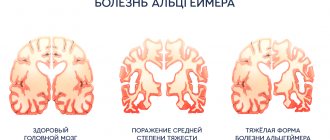This article was developed under the heading: Psychology.
Section: Character.
In modern society, relationships between people are complex, multi-layered and not always sincere. Each of us has encountered people who hid completely different intentions behind their actions or words. We also often encounter lies, betrayal or deception. Such people who bring nothing but disappointment into our lives are called hypocrites. “Hypocritical people” is more a description of the special moral qualities of a particular individual. Now being a hypocrite is even a serious insult. But is it really that bad? Can at least one person be called completely sincere, honest and unhypocritical? Let's try to answer these difficult questions in this article.
In this article we talk about hypocrisy and duplicity
What is hypocrisy and who is a hypocrite?
The term “hypocrisy” is studied in various sciences. For example, sociology, psychology, cultural studies. This phenomenon can also be found in art. For example, hypocrisy is often revealed in works of fiction. But what is hypocrisy from a scientific point of view?
Hypocrisy is a moral quality and personality characteristic that suggests that an individual commits immoral or immoral acts and attaches high lucrative value and high noble significance to them.
In simple words, hypocrisy is when a person lies and deceives, presenting his negative actions in a good light and quality. Thus, the term hypocrisy is quite broad in its meaning. Therefore, in science there are different definitions of this phenomenon. We propose to consider some scientific positions for a more accurate understanding of hypocrisy.
Igor Kon
According to Igor Kon, from an ethical point of view, hypocrisy is a negative quality of a person, which means that a person attaches a high moral and ethical meaning to his immoral actions.
Sigmund Freud
He considered the term hypocrisy as a special characteristic of culture and society, in which hypocrisy is a way of protecting society, since a ban is established on judging someone due to the insecurity of the people themselves.
Benoit Monin
This definition is the simpler among all those mentioned. According to B. Monin, hypocrisy is a form of interpersonal deception between individuals.
Thus, hypocrisy is a deception that occurs due to the fact that a person covers his lie with a good purpose or moral properties.
Accordingly, when it comes to who a hypocrite is, we should proceed from the definition of hypocrisy. Thus, a hypocrite is a person who deceives others, covering this deception with other information, or justifying his actions.
Where does hypocrisy occur?
Hypocrisy is a complex human characteristic. And it is complicated by the fact that each individual sets his own boundaries of what is permitted, as well as how relationships between people should be built. However, one way or another, hypocrisy is characterized by general moral principles and attitudes.
Hypocrisy is ubiquitous in modern society. From family to work relationships. Here are some possible areas of hypocrisy:
- Family relationships. Relatives may secretly dislike each other. Therefore, when meeting, they “put on” masks, in which true emotions are quite difficult to track. At the same time, when left alone with another person, people begin to openly show their negative attitude towards any family member;
- Job. There are many reasons why hypocritical relationships are built at work. Often between employees, and also between an employee and a boss. The hypocrisy here (that is, hiding the true attitude towards each other) is caused by the shared workspace. Roughly speaking, people tolerate each other so as not to disrupt the work process.
Human hypocrisy occurs in all types of relationships and areas of activity.
Why are people so hypocritical these days?
In fact, hypocrisy has been known to society since its inception. We can say that this is a normal human and social process. If everyone said what they really thought, it is unlikely that society would make any progress.
The modern situation is complicated by the fact that hypocrisy is, roughly speaking, encouraged by modern technologies and methods of communication. On the Internet, when you can hide your true identity, you can make your negative comments while hiding your identity. Moreover, with each generation people become closed, withdrawn, and suspicious. Therefore, revealing the true motives is the privilege of a narrow circle of people (the inner circle).
It is important to understand that hypocrisy is not an entirely negative phenomenon. It can also be viewed from a positive point of view. Moreover, we all use hypocrisy in our lives in one way or another. Sometimes you may not even notice it.
What is the difference between a hypocrite and a liar?
A rather difficult question is how hypocrisy differs from lying. In truth, lying is a component of any hypocritical communication. However, the motives for these two actions are different. Let's look at this issue in more detail.
Hypocrite
A hypocritical person is, first of all, a person who uses lies on a constant basis. What does it mean? This means that hypocrisy describes the very character of a person and his personality. For example, for various reasons such as: low self-esteem, self-doubt, various psychological traumas, a person can insult another behind his back while outwardly maintaining a “good” relationship with him. That is, he hides his true motives due to various factors. And here we are not talking fundamentally about some information that the hypocrite does not want to disclose, but about the attitude towards someone.
Liar (liar)
In turn, lies are clear actions of a person that are aimed at hiding some information. For example, information about infidelity, betrayal, etc. In this case, the person does not change his internal attitude towards the interlocutor. But he prefers to lie and hide some facts that he would not want the interlocutor to know. At the same time, lying is always the basis of hypocrisy, since the hypocrite tries to lie about his true attitude towards a specific individual.
But as already mentioned, hypocrisy and lies are quite similar to each other as a social phenomenon. Therefore, quite often it is very difficult to distinguish them from each other. Hypocrisy always has a hidden and selfish motive. For example, reluctance to lose one’s importance and possible help. Often such situations occur in the classroom. When an excellent student helps her friend on tests and with homework. And the second one calls her names and insults her in the company of others. He even makes fun of him for his naivety. She doesn't want to lose any possible help with her studies, so she only speaks her true emotions behind her back.
Tips and questions
What is hypocrisy: pain from the loss of an old acquaintance, or relief from revealing his essence? Losing friends because of their pretense is sad, but you can't let a problem like this complicate or ruin your life. At such moments, it is important to distract yourself with new hobbies to take up time if communication is quite stressful and annoying. Your comfort should be a priority in everything.
The main advice for dealing with hypocrites is to communicate with them in the same way. People understand their mistakes and correct themselves after their loved ones turn away from them.
A man hides behind the mask of a hypocrite
In what situations is hypocrisy most often observed?
Hypocrisy is especially pronounced when a person acts or says something from the state of “this is how it should be, this is how it is accepted”:
- forgives offenders in words, but in reality continues to harbor a grudge;
- knows that he is overweight or has other complexes, but continues to do nothing to improve the situation, for example, he calms himself down with unhealthy food and is in no hurry to exercise;
- maintains friendly conversations with people for the sake of gain, although he experiences negative emotions towards them and does not want to continue to maintain communication after achieving the goal;
- talks about the benefits of positive thinking when experiencing constant anger, resentment, hatred, envy, etc.
What is the difference between duplicity and hypocrisy?
These concepts are synonyms because they express the same thing. Duplicity and hypocrisy are communicating with different people in different ways to achieve goals to please your ego. Under certain circumstances, a person behaves with people of high income, showing or inventing qualities that he does not possess, and with those who are lower in status, he behaves in a completely different way, and in a bad way - this is duplicity or hypocrisy.
This behavior is repulsive and does not generate the need for continued communication.
What is the difference between betrayal and hypocrisy
Betrayal is a deliberate violation of agreements, oaths or deviation from values, norms or their denial. Betrayal can happen once over the years of a romantic, friendly or work relationship, while hypocrisy is a pattern of behavior in which a person has double standards, so his words and actions are at odds with reality.
Why hypocrisy is not included in the 7 deadly sins
The 7 deadly sins are 7 passions that are difficult for a person to cope with without the effort of willpower. These include: anger, despondency, pride, fornication, envy, greed, gluttony.
These passions lead a person to distortions in behavior, for example, to hypocrisy. The Bible denies this phenomenon as a mortal sin. Confirmation of this is found in the New Testament (Matthew 6:2, Matthew 6:5, Matthew 6:16).
How to Stop Mistaking Hypocrisy for Truth
To stop accepting hypocrisy as truth, you need to understand what motivates a person when he chooses such behavior. Since childhood, a person has been accompanied by fears about various areas of life. It also accompanies the state of the victim, who cannot find a rescuer and therefore tries to adapt to everyone. If communication with such a person is uncomfortable and unresourceful, it is better to refuse it or reduce it to a minimum, if this is a close relative or colleague.
A clear understanding of what hypocrisy is, as well as knowledge of the signs by which one can identify a person who is a hypocrite will help one to abstract from the words and actions of such a person. The main signs: insincerity, a clear desire and need to please everyone for the sake of profit, especially the manager, senior comrade or other superior individuals, constant change of opinion for selfish purposes, spreading gossip and any false information.
Types of hypocrisy
As already mentioned, hypocrisy can have several reasons. That is, there are several factors of hypocritical behavior in a person. In accordance with these factors and areas where hypocrisy is applied, types of hypocrisy are divided, which we will talk about later.
Hypocrisy presupposes that a person puts on a mask of duplicity in relation to other people
Double standards
“Double standards” mean that different types of criticism are applied to different people. For example, one person may be convicted of an action, but another may not. By analogy, this applies to the hypocrite himself, his personality. For example, a hypocrite may strongly condemn the actions of his friend. But at the same time, he will consider the same actions committed by himself to be true and correct.
This is where the double standards lie. In simple terms: for one person such standards will exist, but for another they will not, in the eyes of a hypocrite.
Moral duplicity
Moral duplicity, in turn, presupposes exactly what we talked about earlier - a person’s attitude towards another.
A simple example: this is a group of friends in which everyone communicates nicely. But at the same time, if someone from the company is not at a meeting or on a joint vacation, then this person becomes the center of discussion among the other members of this company. Roughly speaking, moral hypocrisy involves the hypocrite deceiving another person with his true attitude towards him. But at the same time, with third parties he can openly express his attitude towards him
It is in relation to this type of hypocrisy that such characteristics as duplicity are often used.
Moral weakness
Moral weakness is quite different from the types already listed. If the previous types suggest that the hypocrite person enters into complete confrontation with some other individuals. That moral weakness presupposes a type of hypocrisy that appears due to insufficient confidence in one’s own beliefs.
That is, in fact, moral weakness is the most average version of hypocritical behavior. Moreover, such a hypocrite will not be considered two-faced. That is, the hypocrite himself can sincerely believe in the beliefs that he conveys to society.
Religious hypocrisy
Hypocrisy is a general concept for many areas of human life, so it is considered even in the context of religious teachings. For example, Islam identifies hypocrisy as a separate category of human vices. Of course, we will not delve into the content of religious scriptures, and especially Islam. But based on this, we can identify the following possible types of hypocrisy.
The Great Hypocrisy
The first type is hypocrisy of belief. In the context of Islam, this implies that a person outwardly shows his faith, while observing the traditions and precepts of the religion, but in reality he is not a believer.
Minor hypocrisy
The second type is hypocrisy of actions. This behavior suggests that a person may not comply with the external mandatory procedures of religion, but at the same time is a sincere believer.
How to avoid age spots and scars
- Start acne treatment immediately. Even mild forms cannot be ignored - grade 0-2 acne, when there are single elements on the skin.
- Don't push! A banal but difficult point to implement. Skin cleansing can be done and sometimes even necessary, but it should be done carefully and competently by a cosmetologist.
- Use medications with anti-inflammatory effects. Not to be confused with antibacterial! Anti-inflammatory drugs have both preventive and therapeutic effects.
Recommendations follow from the previous paragraph - exclusion of predisposing factors.
Examples of hypocrisy in life
Hypocritical people are found everywhere. Each of us has met such individuals, and some even continue to communicate with them. Let's look at some simple examples of hypocrisy.
Hypocrisy in friendship
The mask of duplicity is often found in friendly relationships. In friendship, a hypocrite is one who hides his true attitude towards his friends.
For example, you have a company of 3 people. One of them constantly discusses the third friend with you. He condemns and condemns all his actions. But at the same time, he does not personally express these dissatisfaction. Everything happens secretly and secretly. When the three of you communicate, you see that the hypocrite is trying in every possible way to preserve the feigned sincere relationship. This is justified by his selfish motivation and motives.
Hypocrisy at work
A two-faced person can also be encountered in a work team. For example, a boss and a subordinate need to hide their own dislike for each other. Since this is necessary to continue working together. But they talk about each other behind their backs, express dissatisfaction and “dream” of never working together again.
Such hidden hostility is not always caused by the fact that someone is a bad professional. It may be a simple personal dislike that cannot be expressed due to the working relationship between the people.
At university or school
Often a person behaves duplicitously when in an educational environment. For example, a classmate does not like another who is an excellent student and understands all the material without difficulty. The first thought comes to mind: make friends in order to constantly receive help. At the same time, an excellent student in the company of a classmate will be subject to constant ridicule and she will not hide her hostility towards her.
There are reasons why a person is two-faced in adulthood
Merriam-Webster's Definition of Hypocrites
You must be logged in to save this word.
hyp · o · crite |
\ˈHi-pə-krit\ 1 : a person who pretends to virtue or religion
2 : a person who acts contrary to his or her stated beliefs or feelings
Other words from hypocrite
hypocrite adjective
Examples of hypocrisy in sentencing
We can learn a lot about the morals and morals of the time from Lautrec because he was neither a hypocrite nor a sentimentalist, and that is the problem. - a fact about his vision... it excludes both nostalgia and lust. - Elizabeth Cowling, Times Literary Supplement, November 8, 1991 Maintaining high moral, ethical and social standards is very difficult, because unless one sets a perfect example, he becomes a target and a hypocrite, although well - in the sense of one. — Mark Masters et al., New Dimensions, June 1990 About all these things and people, Silla knew nothing, and he could not tell her, but still he tried to show interest in what she told him. Once upon a time, he it would be very interesting. Now he felt like a hypocrite, and because he felt uncomfortable, he somehow blamed Silla for it. — Esther Forbes, Johnny Tremaine, 1943 hypocrites who criticize other people for not voting, but who do not always vote themselves
See other recent examples online. She is a pragmatist and a hypocrite, a woman with political ambitions who realized that the only way to be taken seriously on the public stage was to take a stand on women's issues. - Anne Cohen, refinery29.com, "Mrs. America Premiere Summary: How Phyllis Schlafly Went from Nuclear Expert to ERA Villain,” July 2, 2021 Regardless of what happens next, to many Bill Cosby will be viewed not only as a monster but also as a hypocrite. — Michael Arsenault, Essence, “Bill Cosby Can't Save His Legacy,” July 1, 2020. Instead, Life of Brian makes political hypocrites and gullible, bloodthirsty mobs its targets.—Madeleine Kearns, National Review, “Twitter outrage over Church of England views on sex,” January 24, 2021. In response to his tweet, people online expressed he received the same criticism, calling him a hypocrite for favoring one form of bodily autonomy over another—and only for cisgender men. — Ellie Belle, refinery29.com, “Ted Cruz Is Ready to Fight for Cis Men's Reproductive Rights—But That's All,” February 18, 2020 Who was the pawn, the mercenary, the hypocrite, the accomplice? — Anne Diebel, New York Review of Books, The Good Guy, January 28, 2021 Arizona State coach Herm Edwards changed offensive coordinator as part of an overhaul on that side of the ball this offseason, prompting critics to call him a hypocrite. — Greg Moore, azcentral, "Here's Why ASU Football Coach Herm Edwards Fired Three Offensive Coaches During Overhaul," Jan. 11, 2020 The couple were also called hypocrites for using a private jet to travel with their young son, despite their stated support for environmental causes. reasons. — NBC News, "Prince Harry and Meghan, Duchess of Sussex to 'step back as senior royals'", January 8, 2021. Roth ridiculed Howe and the magazine as boring hypocrites in his 1983 novel. Anatomy lesson. — Jeet Heer, The New Republic, "Commentary Still Can't Forgive Philip Roth," May 24, 2018
These example sentences are automatically selected from various online news sources to reflect current usage of the word hypocrite. The views expressed in the examples do not reflect the opinions of Merriam-Webster or its editors. Send us feedback.
More details
First known use of hypocrite
13th century as defined in sense 1
History and etymology of the hypocrite
Middle English ypocrite, borrowed from Anglo-French ipocrite, borrowed from Late Latin hypocrita, borrowed from Greek hypokritḗs "respondent, actor on stage, impostor" from hypokri-, variant of the stem hypokrī́nomai, hypokrī́nesthai "respond, give an answer, speak in dialogue, play a role on stage, pretend” + -tēs, agent suffix - more for hypocrisy
Learn more about hypocrisy
Quote this post
"Hypocrite." Merriam-Webster.com Dictionary, Merriam-Webster, https://www.merriam-webster.com/dictionary/hypocrite. Accessed 5 August 2021
MLA Chicago APA Merriam-Webster
Additional definitions of hypocrite
hyp · o · crite | \ˈHi-pə-ˌkrit\
Kids Definition of a hypocrite
: a person who acts in a way that goes against what he or she claims to believe or feel. She is a hypocrite who complains about the litter and then the litter itself.
Other words from hypocrite
hypocrite \ˌhi-pə-kri-ti-kəl\ adjective
Comments to the hypocrite
What made you look for hypocrite? Please tell me where you read or heard it (including the quote if possible).
.
Signs of a hypocrite and how to recognize one
But how can you identify a hypocritical person in your environment? Such people have common similarities and characteristics. It is these signs that we will now consider:
- Features of nonverbal communication. Social relationships with someone are not just about words. It is also important to pay attention to physiological signals. For example, an insincere smile, tension on the face, redness of the skin. These signals indicate that the person may be lying to you. You should also pay attention to the position in which the person communicates with you. For example, it can be closed (legs crossed, arms crossed on the chest, hands locked). This will indicate detachment from you. In some conversations, such as personal ones, this may also indicate a negative attitude towards you;
- Speech. How concise the speech is can also indicate sincerity. For example, if in a normal state your interlocutor speaks competently and does not stammer. But at some point he begins to “moo”, gets confused in letters and words, then they are probably trying to deceive you, they are not talking to you sincerely;
- Hypocrites are often characterized by selfishness, as well as a heightened sense of their own greatness. Such people strive to elevate themselves among others. At the same time, they themselves do not put other people on their level;
- Hypocrites love attention. They can attract the attention of others with their confrontational phrases and opinions;
- Other people may point out your friend's hypocrisy. This is something to pay attention to;
- When talking to you, he discusses other people. At the same time, in front of these people, he behaves two-facedly. Remember that if a person did this to someone, he can easily do this to you.
- Often hypocrites can be mercantile and judge people behind their backs for their own purposes.
The main thing is that the hypocrite discusses others. But he doesn’t tell them about it to their faces. This is why duplicity and hypocrisy occur.
Almost all of us are hypocrites in certain situations.
History of the term
Even during the primitive communal system, people learned to be hypocrites. Scientists are sure that the hypocritical instinct is inherent in humans by nature. Of course, this behavioral feature appeared earlier than the special term by which this personal quality was called.
The term for this personality trait originated in Ancient Rome. At that time, girls playing various roles in the theater were called hypocrites. In a literal sense, this word meant “to try on different faces, to appear in different images, to wear a mask.”
The roots of hypocrisy should be sought in ancient theatrical art
The Greeks also had the word “hypocrisy”, using which they wanted to say that a person was behaving artificially, pretending.
Now this term denotes such human behavior in which a clear contradiction is revealed between his external actions and personal beliefs. Synonymous concepts for this personality trait are:
- falsehood - insincerity in behavior, falsity (the term is used in psychology when there is a need to indicate the discrepancy between a person’s words and his facial reactions);
- guile is a negative character trait, expressed in the fact that a person displays cunning, flattery, and intrigue when communicating with loved ones;
- pretense – conscious actions of a person aimed at misleading interlocutors;
- hypocrisy is a demonstrative model of pious behavior of an individual who in reality does not follow religious principles and does not show piety in everyday life;
- deception – deliberate concealment of true information, distortion of facts;
- two-facedness is a psychological strategy of human behavior in which the words and actions of an individual diverge from his personal beliefs.
Why do people become hypocrites?
A hypocritical person begins to be a hypocrite for specific reasons. This can be both education and a way of psychological protection. But for what reasons exactly does a person become hypocritical? Let's look at the main factors in the formation of duplicity.
Fear of punishment or condemnation
Strange as it may seem, duplicity and hypocrisy can primarily be caused by fear and uncertainty. For example, a person is unsure of the correctness of his opinion or decision, so he prefers to obey the opinion of the majority. Such people are weak-willed. Therefore, even if their attitude towards someone is opposite, they will not say so for fear of not being accepted in the social group.
Principle of least resistance
The principle of least resistance works similarly to fear of punishment. That is, the less “different” you are from those around you, the easier it is to become a full-fledged part of a group. Thus, in this case, hypocrisy works as a measure and method of socialization.
Following social norms
Imposed moral and social values can also cause the formation of duplicity. our views may differ dramatically from generally accepted ones. Therefore, hypocrisy is self-deception in which we adapt to general norms, denying independent opinions and views.
Insincerity towards oneself can cause the formation of duplicity
Reluctance to offend
“White lie” - everyone has heard this phrase at least once. She says that sometimes it is better to lie than to tell the truth. But is it? Hardly.
Hypocrisy, based on a reluctance to offend, is built on the internal belief of the hypocrite that his lies will make everyone better. This way he will save someone from unnecessary negativity and worries.
Selfish motives
Self-interest is secret reasons, most often associated with material gain. For example, hypocrisy can be used to get a high grade on an exam or to advance in your career.
Copying parents' behavior
Education and family are the sources of formation of our personality. Therefore, if lying was common in the family. It is more likely that in adult life the child will begin to unconsciously copy this model of building relationships with people.
Hypocrisy as a mechanism of self-deception
This type is very associated with uncertainty and reluctance to enter into confrontation with others. Therefore, the hypocrite deceives not only the people around him, but also himself.
Hypocrisy does not always involve causing moral harm to someone
Use the truth
The hardest thing to identify is a lie that cannot be distinguished from the truth. By and large, you are telling the truth, but your opponent is sure of the opposite. This is a method of partially concealing any information.
In some cases, the direct attack method works. Ostensibly joking, you talk about what they are trying to convict you of. So, for example, when asked by your girlfriend where you were for so long after work, answer her that you were just in the bathhouse with her best friends. It has been found that the most convincing liars are those who can anticipate any questions.
Show/Hide text
WikiReference: A white lie (delicate lie, a lie of “good taste”) is a lie that, in the opinion of the speaker, will provide significant relief to the listener, and if its falsity is revealed, will bring only slight inconvenience. White lies are usually told so as not to offend or upset anyone; for example, a not very attractive girl is told that she is “very good.”
Attitude towards hypocrisy in society
Now many people say that hypocrisy is a modern disease of the 21st century. People shout that you need to be honest, sincere, and say everything to your face. But is it really that useful? Before summing up how to think about hypocrisy, let's look at some of the pros and cons of hypocrisy.
"Behind"
- Allows you to avoid unnecessary conflicts;
- If you are an impressionable and emotional person, a slight degree of hypocrisy will save your nerves;
- Honesty is not always possible in some social relationships: work, study, etc. It is unlikely that you will be able to express to your teacher all the negativity that has accumulated in you towards him;
- Tolerance, especially due to teamwork factors, can also be seen as hypocrisy. But this allows you to finish the job and achieve high results in the group.
"Against"
- This offends other people, including those closest to you;
- Hypocrisy becomes a repulsive factor for others;
- Duplicity can be used as a way to achieve selfish goals;
- Often duplicity indicates absolute insincerity;
- You may be deceived, including deception regarding feelings and emotions;
- Inability to build close and intimate relationships.
Think about it, how often do you cheat? How often do you avoid sharp phrases and expressions to avoid conflict? Absolute sincerity is a myth. No person can be absolutely honest about everything that happens in his life. We all live in society, and each of us is a separate individual personality. Therefore, it is often simply impossible to send out real thoughts.
How to Deal with a Hypocrite
Is there a classic example of a hypocrite in your circle? You don't know how to communicate with him? Let's look at some of the nuances of communicating with such people:
- If the situation allows: avoid the hypocrite, reduce possible contacts with him;
- In cases where contact is necessary, try to minimize the initiative on your part;
- Do not show that some words or phrases of the hypocrite offend you. Keep your emotions under control;
- Don't participate in others' discussions.
In fact, all methods of communication come down to minimizing possible contacts. The main thing is to build your personal boundaries and designate a space that a hypocrite cannot enter.
What kinds of post-acne acne occur?
There are 3 types of post-acne, not only age spots:
- Scars are the most undesirable complication of post-acne
- Pigment spots – brown spots on the sites of former rashes
- Congestive erythema - redness accompanied by compaction from an unresolved element
All three types of post-acne can be present on the skin either simultaneously or separately, depending on individual characteristics and the tendency to develop pigmentation or scars.
How to expose a hypocrite
Do you want to expose the hypocrite? Do you want others to know about his fakeness? Then you can apply the following actions:
- Constantly ask leading questions to the hypocrite. Try to confuse him;
- Call out the hypocrisy directly and try to have a constructive dialogue;
- If your relationship is close, try to have a heart-to-heart talk and express the problem;
- Involve other people: friends, loved ones, relatives;
- Remember the inconsistencies;
- You can try to prick the hypocrite in a common company so that he is in the discomfort zone.
Means of combating hypocrisy
Hypocrisy is a personality characteristic, therefore, like any character trait or emotion, it can be controlled. The following are ways to combat hypocrisy:
At the level of consciousness (elaboration of one’s own attitudes, values, causes and consequences)
At the level of social and personal responsibility
In the field of personal development
Working with self-esteem, perception of the world and one’s own capabilities
Despite the fact that such control methods look very banal, they really help as a way to effectively control this personality mechanism. For the most part, the fight against hypocrisy occurs through introspection and self-improvement. Of course, if you want to help your neighbor, you can help him with this. However, such support and assistance should only be expressed in empathy and understanding. Under no circumstances should you blame or insult anyone.
Human hypocrisy can be controlled and “treated”
The main predisposing factors for the appearance of post-acne
- Severity of acne – acne of III and IV severity often leads to complications, because affect the deep layers of the skin.
- Individual skin characteristics, genetic predisposition - such as dark skin color, a tendency to increase melanin production at the slightest inflammation or damage to the skin.
- Lack of treatment, inappropriate treatment, or late treatment is when the process has been present in the skin for a long time and has affected deep tissues.
- Skin injuries during mechanical cleaning, i.e. when roughly squeezing out pimples.
The presence of at least one predisposing factor may be the cause of the development of post-acne.
How to deal with hypocrisy within yourself
Based on the results of this article, one important conclusion can be drawn: every person is a hypocrite to one degree or another. And this is quite normal, since hiding the true attitude and motives in some life situations can serve as a way to avoid conflicts, build business relationships, etc.
But what to do when hypocrisy goes beyond reasonable and acceptable limits? What if I'm a hypocrite? Of course, this phenomenon lends itself to self-control and self-regulation. In this case, it is not at all necessary to contact specialists. Because you can get rid of duplicity yourself. Here are some tips to combat hypocrisy within yourself:
- Initially, you need to sort out your life attitudes and values. In the process of this, you need to accept the fact that you are an individual person who has the right to his own point of view. Even if this point of view does not suit most people. Of course, here we are talking about those attitudes that do not go beyond the concepts of morality and ethics;
- Develop a moderate eccentricity in yourself that will not allow you to succumb to the opinions of others who may be hypocritical. This factor is characteristic of some social groups, and the originality of eccentrics can save you.
- Accept and understand the responsibility you have for your own values. Here again the point is that your interests and moral qualities/values are unshakable and should not be criticized by others;
- Strive for development. Development, including self-development, is a way to solve most personality problems. Spend more time alone with yourself, learn to understand and hear yourself and your desires;
- Work on your self-esteem. Finding that golden mean of self-esteem is quite difficult. It's easy to go to extremes. Therefore, it is important to understand that you can be better than someone only based on objective criteria. For example, by the presence of professional skills. But you can’t adequately consider yourself worse. Perhaps your fear of responsibility is stopping you;
- Be sincere with your loved ones. It is important to learn how to express your emotions and attitude correctly. Start with a close and narrow circle. As soon as you learn to correctly present your thoughts to them, this will automatically transfer to the sphere of ordinary communication between people.
What to do if you manage to identify a hypocrite among your friends
Obviously, anger does not solve anything, because a person who is deceitful and acts in dishonest ways will hide behind his behavior to criticize the anger directed at him, and our attitude does not change anything. That is, their behavior will remain the same. Thus, there are some psychological techniques that can help deal with the lies of hypocritical people. How to behave?
Provide the necessary evidence base
In situations where hypocrisy is present, it is best to expose it. To do this, you need to be true to your own principles, regardless of the sphere of influence of this person. Show him with a clear example, recall a situation where a hypocrite contradicts himself. Ignore his excuses, criticism of other people, and also avoid concentrating on the insults that can pour in, because his authority has been shaken.
Analyze their behavior
You need to be careful in your judgments and try to be unbiased. Human nature knows how to label, fall under the influence of the majority, and likes and dislikes also influence the perception of another person. False emotions make you see negative traits in an unpleasant person; hypocrisy is no exception. Try not to listen to others, but form your own opinion. Take a closer look at a friend, acquaintance, employee. Characterize his behavior from the outside, try it on yourself. Think: “What would I do in his place, what would I change or behave in the same way?” This will help you draw the right conclusion, evaluate your own actions and moral qualities.
Use as motivation
Look at him with the understanding that you definitely shouldn’t be such a person or adopt certain traits, certain skills. For example, how to please a large number of people, methods of attracting attention, stop criticizing yourself for the slightest mistakes, develop your own communication skills.
In any case, you must try to behave calmly with hypocritical people. By adopting some beneficial skills, you can better cope with uncomfortable situations, grow professionally, but remain true to yourself and better understand your surroundings.
Share on social networks:











